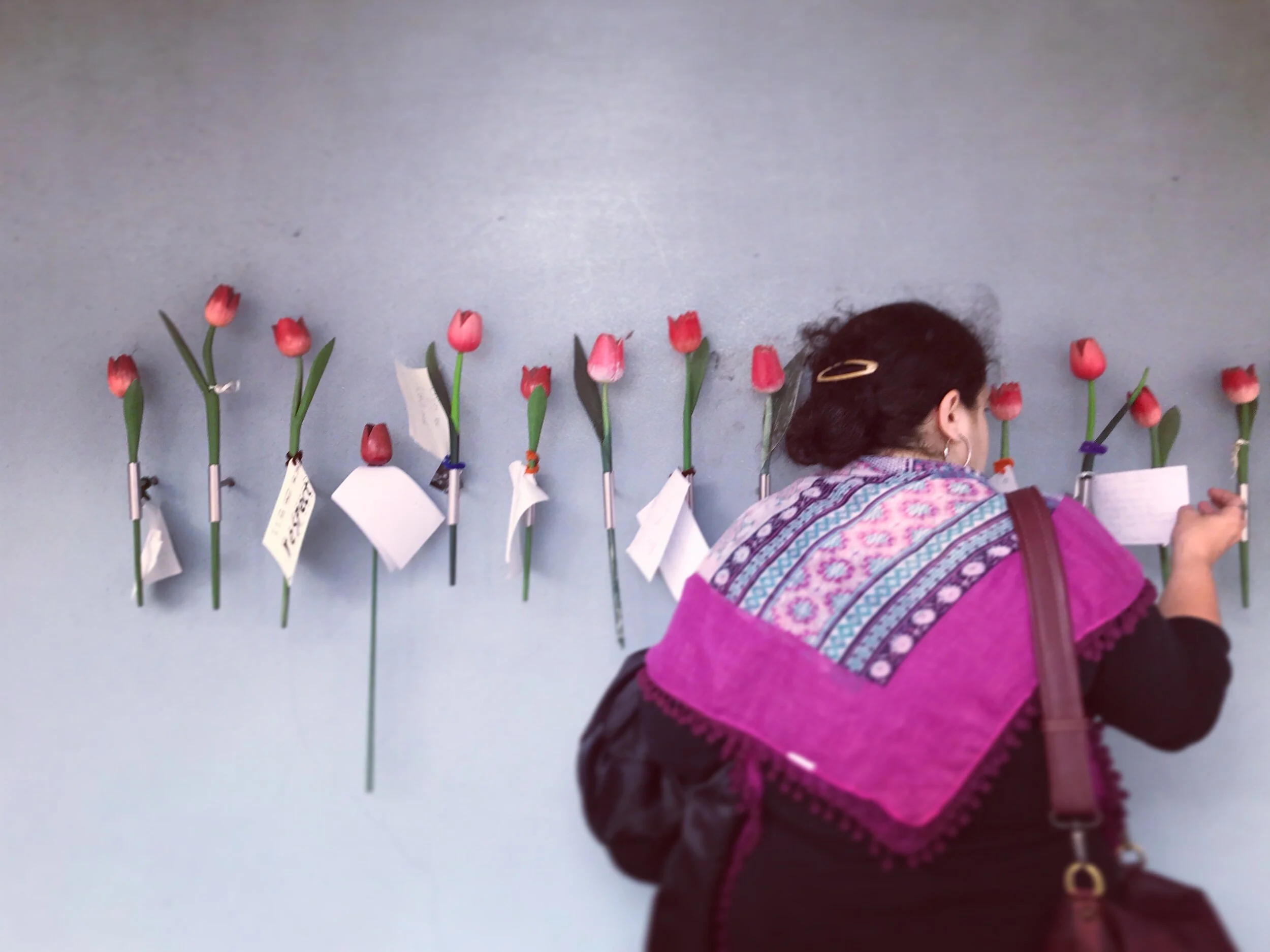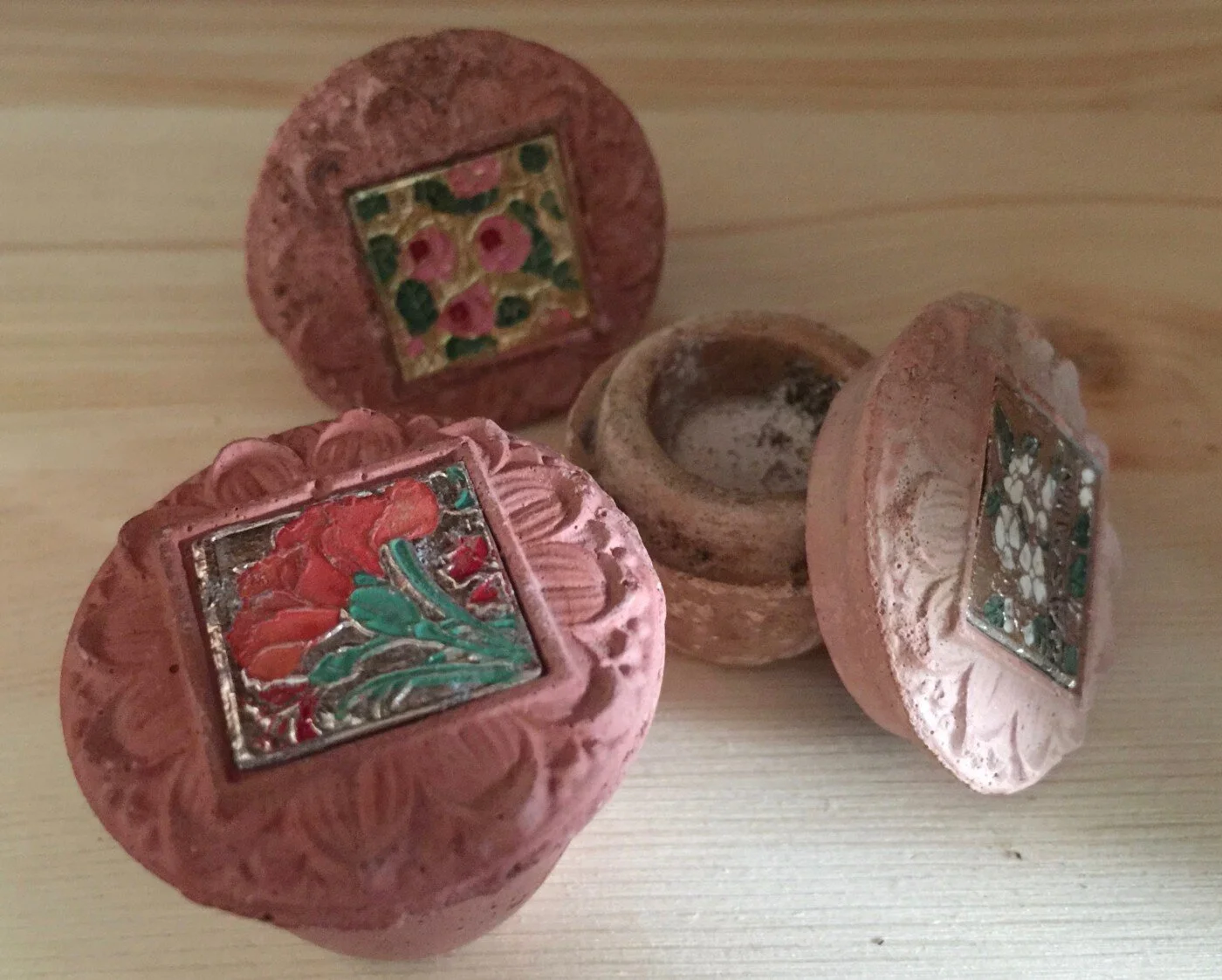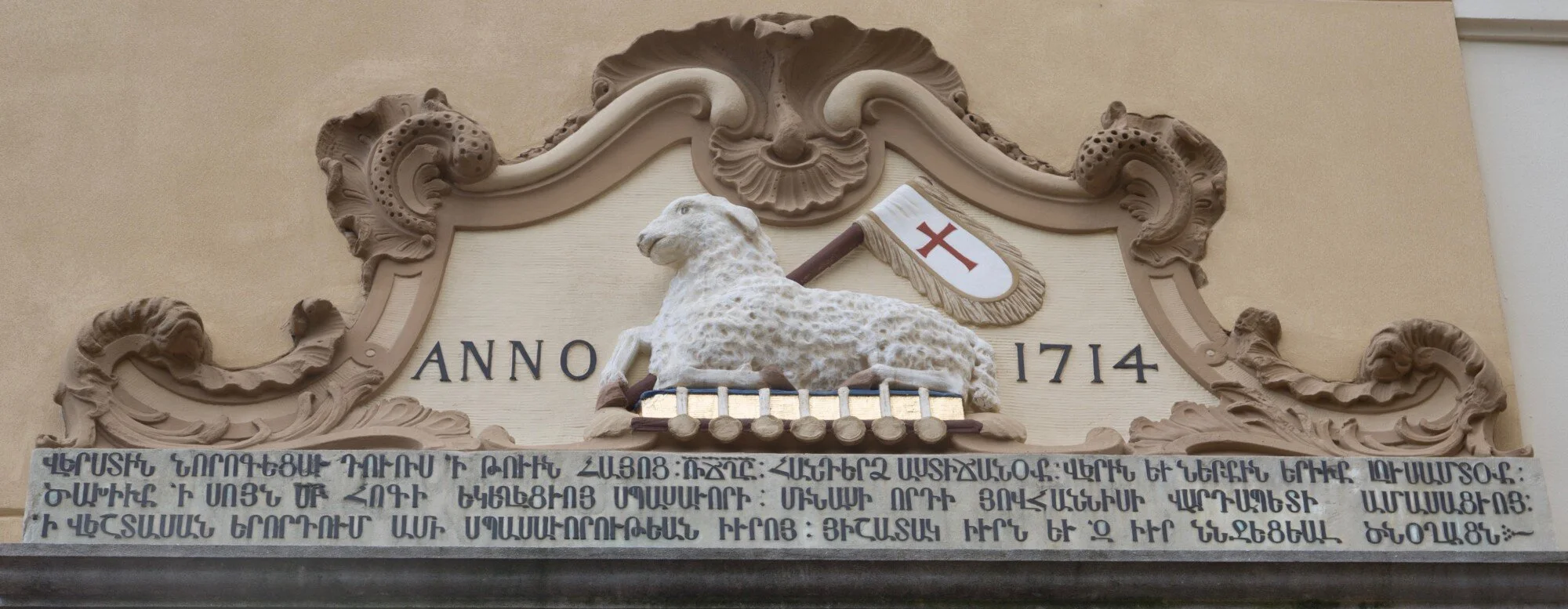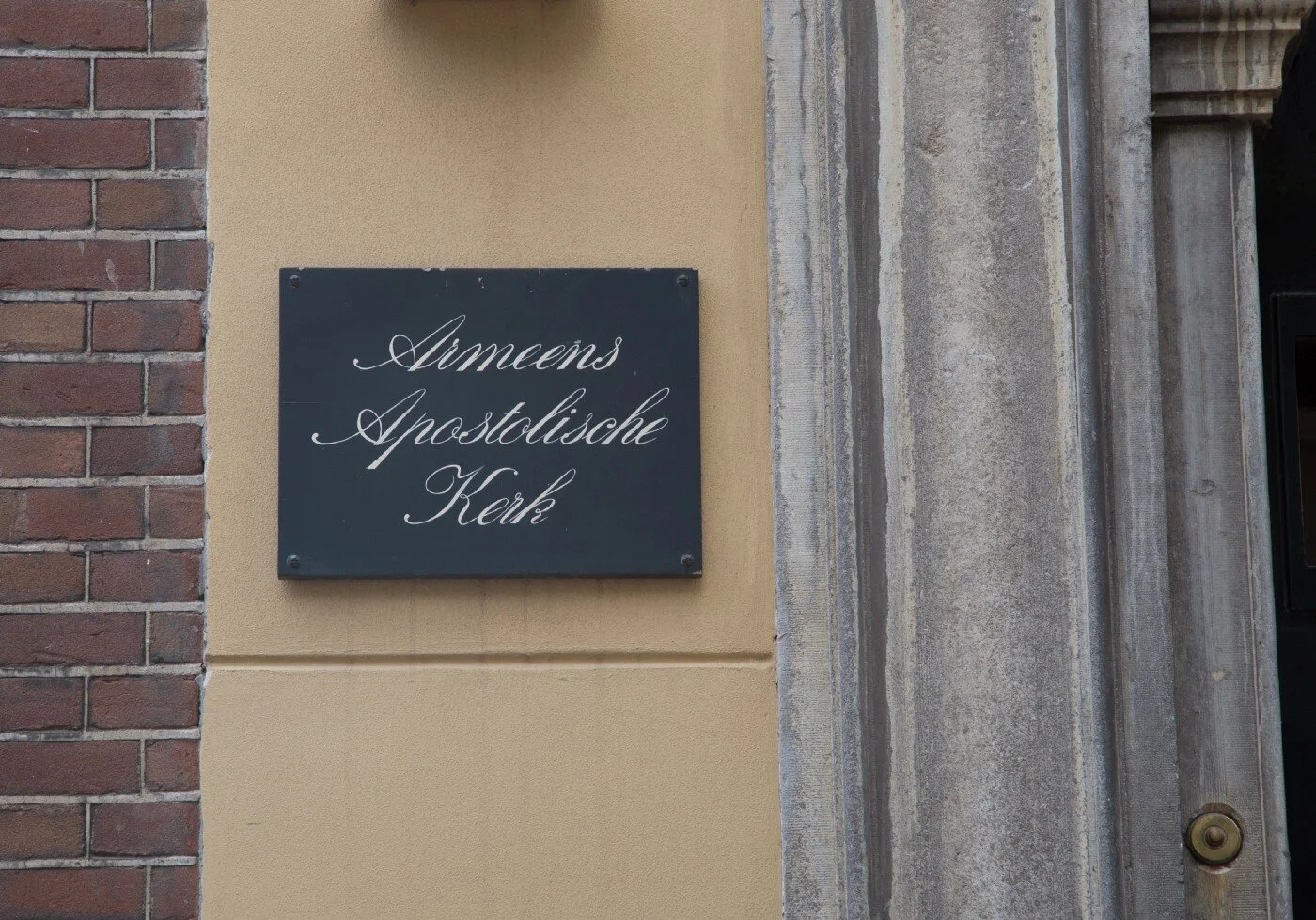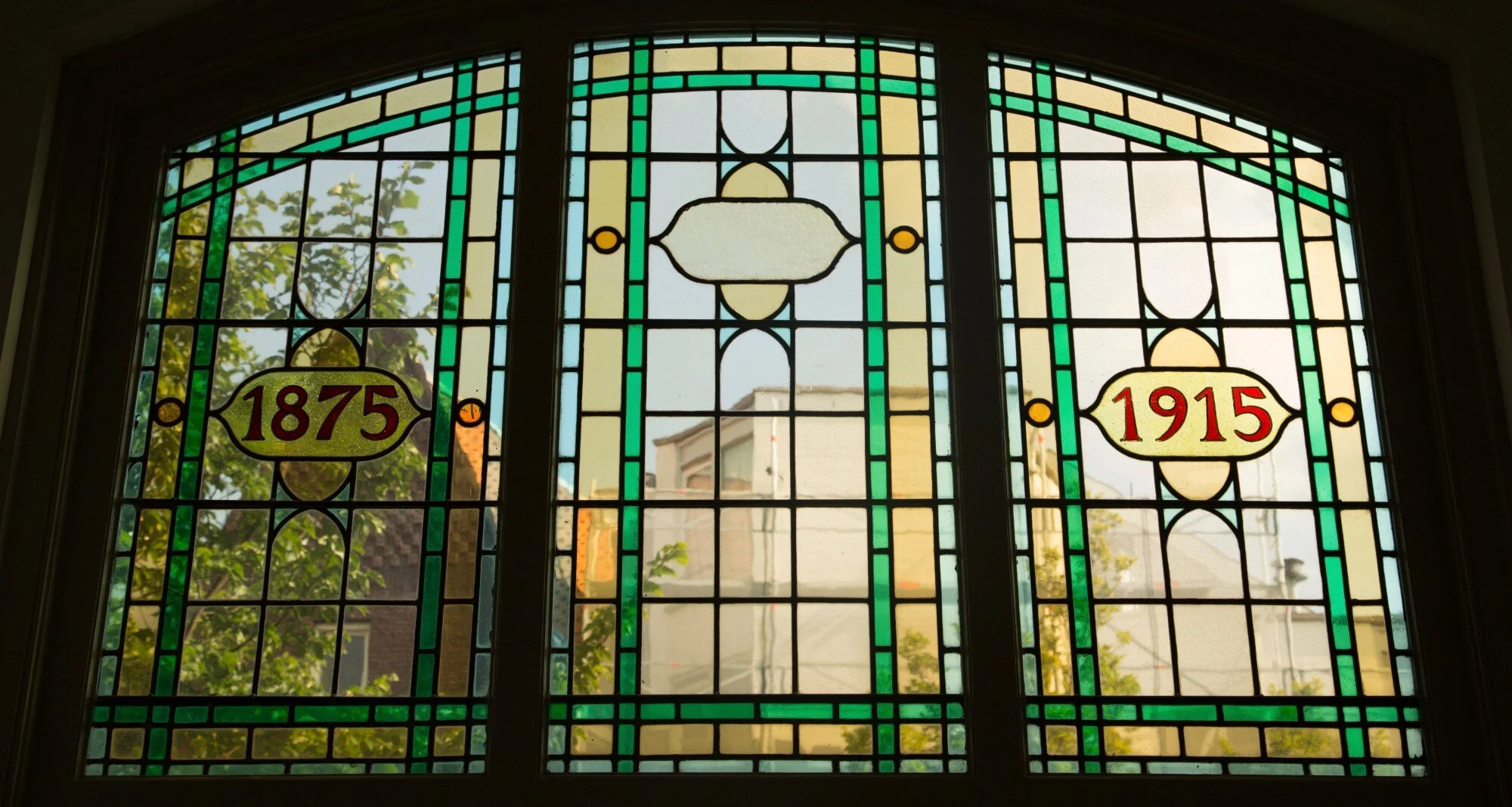History and Geography: On the Poetry of Armenian-Turkish Writer Karin Karakaşlı
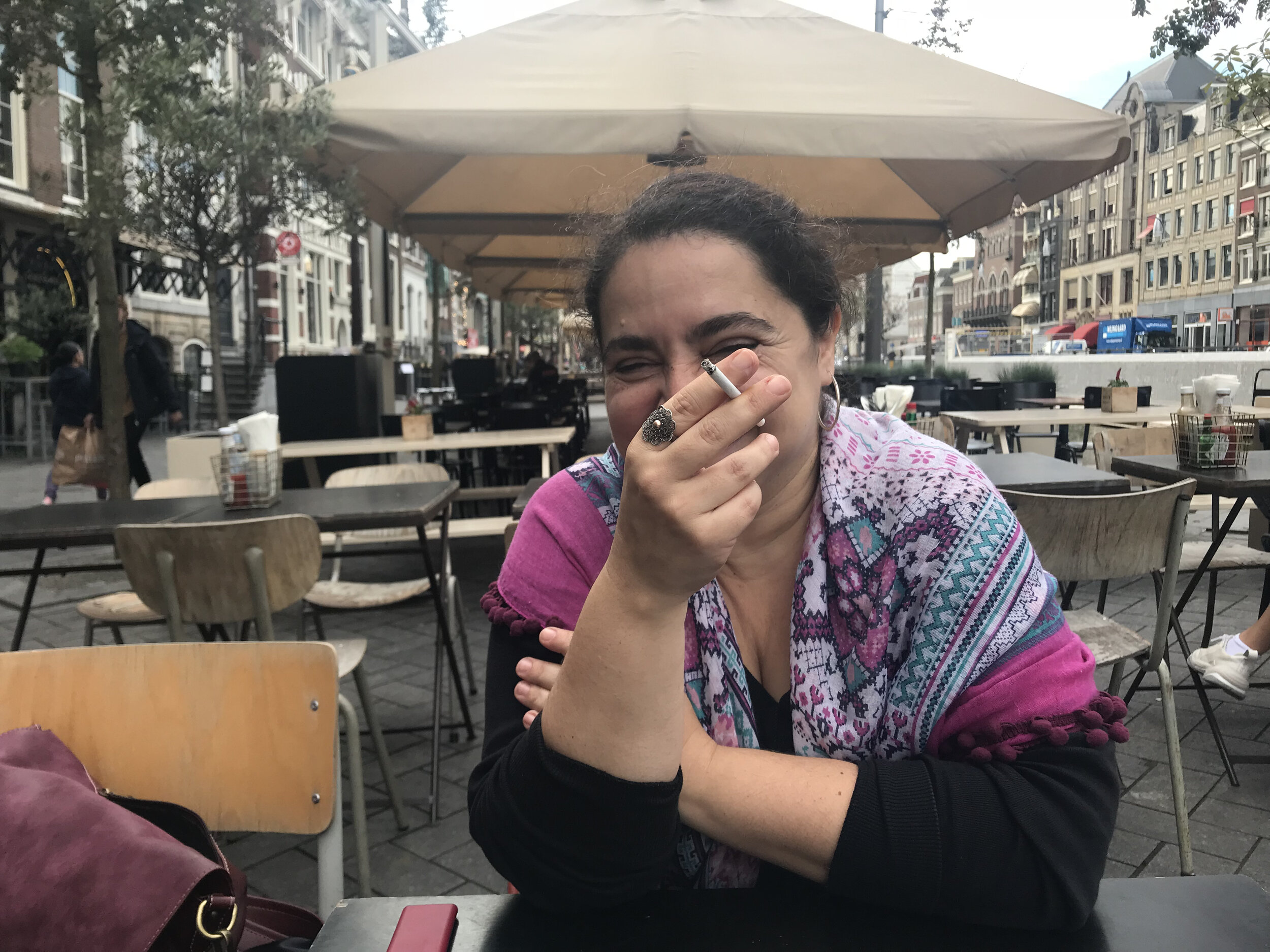
Karin Karakasli at the Hollandse Schouwburg memorial in Amsterdam. Photo by Canan Marasligil.
In my trip to Aix-en-Provence, in the South of France last summer, I came across strange little objects at the market.
“Perfume boxes”, said the merchant.
I looked at him with a, ‘oh nice’ smile. Then he added, “made by an Armenian perfumer from Marseilles during the war”.
I was intrigued. I tried to learn more, but that’s all he could tell me, adding that “in times of war, people needed to make a living, that’s why he thought of these tiny boxes”. I bought the three little terracotta boxes and brought them to their new home, in Amsterdam.
Balat in Istanbul, a historical neighbourhood where Jews, Greek and Armenian Christians lived.
I’ve placed them on my library shelf, in front of books on art. I see them every day, and I even can smell their presence. I imagine their story. I hear the merchant’s voice “Armenian perfumer from Marseilles”, “during the war”, “making a living”. Which war was he talking about? When did this Armenian perfumer arrive to Marseilles? I did some online research, nothing. I was left with my imagination to reconstruct that story.
More than 80 years later — it’s probably how old these boxes are, they still propagate a lovely flowery scent. They remind me of that perfume maker from Marseilles that I never met, that I don’t know. I imagine that he or his family came to Marseilles at the beginning of the 20th century, fleeing massacres in the Ottoman Empire. They settled in Marseilles, like many Armenians at the time.
I have some knowledge of that part of history because I grew up in Belgium. Belgians would wipe out parts of their own dark history but not this one. I’ve known about the Armenian genocide all my life.
Armenian Church in Amsterdam
I’ve been living in Amsterdam for 10 years now, and recently, I discovered that there was an Armenian church in the heart of the city, very close by where I live.
Entrance of the Armenian Apostolic Church in Amsterdam.
“No one is the first to set foot on any soil
You’re always borne by souls who passed before”
These two verses come from Karin Karakaşlı’s poem “History-Geography”. Karin Karakaşlı lives in Istanbul and writes in Turkish. She is from Armenian descent and a great deal of her work, especially her poetry, is preoccupied with the status of Armenians within Turkey and the persistent denial of the 1915 genocide. This poem very directly addresses those issues “in a powerfully economical way” as it is summed up by the Poetry Translation Centre, where I had the opportunity to present and translate Karin Karakaşlı’s work in English.
Inside the Armenian Apostolic Church in Amsterdam
The German Parliament has recently recognised the Armenian Genocide, which has caused a lot of anger in Turkey. On her Facebook page, Karin Karakaşlı has shared a video showing a big group of people protesting in front of the German consulate in Istanbul. They shout and chant the most horrible things, like “the best Armenian is a dead one”, or “we are the soldiers of Alparslan Türkeş” (an extreme right politician, founder of the Nationalist Movement Party), and they end in a chorus of “Allahu Ekber”. That demonstration of hate scares me so much. It hurts too, because it is a reminder that my native country is becoming more and more fascist every day. But more than that, my heart aches and I am afraid for my friends who live in Turkey — all those friends who have a variety of origins and have been living in Turkey for generations. I am afraid that something is going to happen to them. Hatred is terrifying.
I find refuge in the little boxes in my library. I take them in my hand, I smell them. There is nothing I can really do, except share my indignation against such response. Against the fact that we’ve been denying a whole population its right to mourn collectively. That we have failed, as Turkish people, to make that memory part of our collective memory, because it is our history too. I try to participate to building that collective memory, our common narrative, through translation.
As the scent of the tiny perfume boxes caress my senses, as I touch them, they take me back to someone’s story, to memories that I make mine through these very palpable gestures. I read Karin Karakaşlı, and I translate her poetry, because that’s what I can do.
“Granted some of you are my history
yet not my geography
Geography is the name of those who occupy the land
and it takes heart to stay”
Karin writes, I translate,
“I stayed in my geography with my dead
Yet you denied your very self
Turned official, emptied of truth”
Karin writes, I translate,
“I stayed in my geography with my life
to write my own history”
Karin writes, and in my own way, I try to make her writing mine, and yours, and ours. Yearning to build our collective memory away from hatred.
Writer, Literary Translator, Artist based in Amsterdam.
Canan (she/they) publishes The Attention Span Newsletter, taking the time to reflect, to analyse and to imagine our societies through writing, art and culture; and City in Translation, fostering discourse and conversations around the art of translation.
